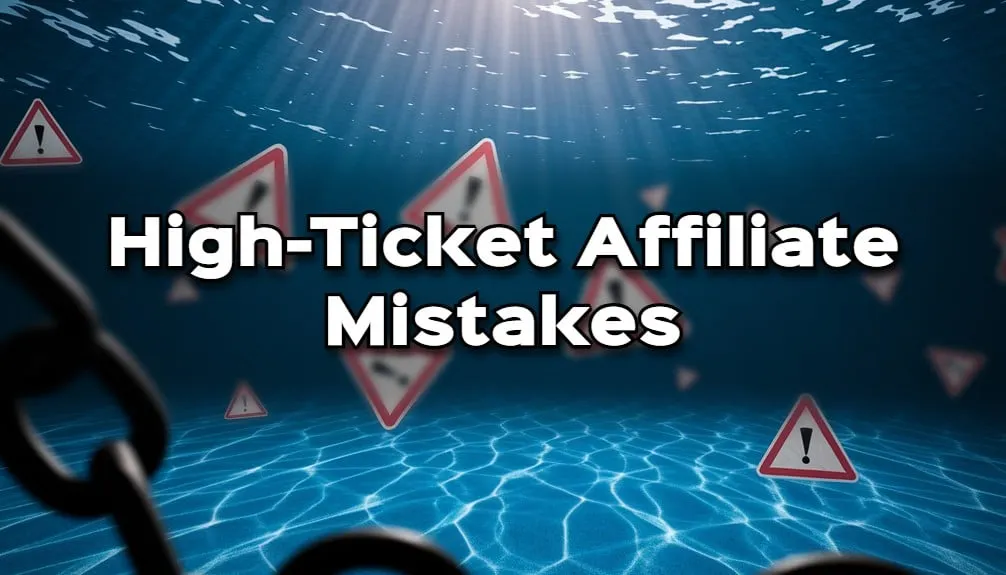How To Start A Blog That Makes Money
Are you tired of the daily grind and yearning for a life of freedom? Starting a blog that makes money could be your ticket to financial independence. With the right strategy, dedication, and hard work, you can turn your passion into a profitable online business.
But where do you start? How do you create a successful blog that generates income?

In this article, we'll guide you through the essential steps to launch your blog and monetize it effectively. From choosing your niche to scaling your business for long-term growth, we've got you covered.
So grab a cup of coffee, sit back, and let's dive into the world of blogging for profit.
Choosing Your Niche and Target Audience
Picking the right niche and identifying your target audience is key to creating content that resonates with readers and helps grow your online presence.
Before you start a blog, it's important to research your competition and understand what they're doing well. This will give you an idea of what's already out there, so you can find a unique angle for your own content.
Next, focus on understanding your passion and how it aligns with potential niches. What do you love talking about or sharing with others? This will help guide you towards a topic that excites you and keeps you motivated to produce high-quality content consistently.
Conducting market analysis is also essential to ensure there's demand for the type of content you want to create. Identify pain points within your chosen niche – what problems are people facing that they need solutions for?
Finally, define your brand identity by considering factors like tone of voice, visual aesthetics, and core values. By taking these steps, you'll be well on your way to creating a successful blog that speaks directly to your target audience.
Setting Up Your Blog Platform
To get your online platform up and running, you'll need to nail down the foundation of your website like a carpenter building a sturdy frame for a house. The first step is selecting a platform that fits your needs. WordPress is the most popular, but there are other options like GrooveBlog, Squarespace and Wix. Each has its own strengths and weaknesses, so do some research before making a decision.
Once you've selected your platform, it's time to customize the design. This is where you can make your blog stand out from others by choosing unique fonts, colors, and layouts. Many platforms offer pre-made templates that can be customized or you can hire a designer to create something completely custom.
Hosting options are another important consideration when setting up your blog platform. You can choose between shared hosting or dedicated hosting depending on how much traffic you anticipate receiving. Content management systems also come into play here as they allow you to easily manage and publish content on your website without any coding knowledge needed.
Finally, integrating plugins will enhance the functionality of your site by adding features such as social media sharing buttons or contact forms. Setting up your blog platform may seem daunting at first, but with careful planning and research, it can be done quickly and efficiently. Focus on selecting the right platform for your specific needs, customizing the design to stand out from competitors, choosing appropriate hosting options based on anticipated traffic levels, utilizing content management systems effectively, and incorporating useful plugins that will enhance user experience while simplifying backend tasks!
Creating High-Quality Content
Now that you've got your blog up and running, it's time to captivate your audience with high-quality content that transports them into the worlds you create. Here are some tips for creating top-notch content:
- Content planning: Before you start writing, take some time to plan out what topics you want to cover and how often you'll be publishing new content. This will help keep you organized and on track.
- Writing techniques: When it comes to writing engaging content, there are a few key techniques to keep in mind. First, make sure your writing is clear and concise - avoid using overly complicated language or industry jargon that might confuse your readers. Second, try to inject some personality into your writing by sharing personal anecdotes or opinions (as long as they're relevant to the topic at hand). Finally, don't be afraid to experiment with different formats - such as listicles or how-to guides - to see what resonates best with your audience.
- Visual content: Don't underestimate the power of visual elements in your blog posts! Including eye-catching images or videos can help break up text-heavy articles and make them more visually appealing.
Once you've created great content, it's important to promote it effectively so that people will actually read it. Some strategies for promoting your blog include:
- Sharing posts on social media platforms like Twitter and Facebook
- Reaching out to other bloggers in your niche for collaborations or guest posting opportunities (more on this below)
- Optimizing your website for search engines through tactics like keyword research and meta descriptions
Another way to increase visibility for your blog is through guest blogging - essentially writing articles for other websites in exchange for a link back to yours. This can help drive traffic from their established audiences over to yours while also boosting your SEO rankings.
By following these tips for creating high-quality content and promoting it effectively, you'll be well on your way towards building a successful blog that generates income and allows you to live life on your own terms.
Utilizing SEO Strategies for Increased Visibility
If you want to ensure that your blog gets noticed by search engines and potential readers, utilizing effective SEO strategies is essential in increasing your online visibility.
Keyword research is the first step to optimizing your content for search engines. Use tools like Google Keyword Planner, SEO Powersuite, or SEMrush to identify the keywords and phrases that people are searching for related to your niche. Incorporate these keywords naturally within your content, including in titles, headings, and meta descriptions.
On-page optimization refers to the various techniques used to optimize individual pages on your website. This includes optimizing title tags, meta descriptions, header tags, image alt text, internal linking structure and more. Ensure that every page of your blog has unique title tags and meta descriptions which accurately describe the content of each page.
Link building involves getting other websites to link back to yours. The number of quality backlinks pointing towards a website is a major factor in determining its ranking on search engine results pages (SERPs). Building relationships with other bloggers or websites in your niche can help you get valuable backlinks. Guest posting on industry-related blogs can also be an effective way of gaining exposure while earning high-quality links.
Incorporating local SEO strategies into your blog can help increase traffic from people searching for businesses or services near them. Listing your blog with Google My Business can greatly improve its visibility in local searches while also providing important information such as location, hours of operation and contact details.
Finally, focus on creating high-quality content that provides value for readers while incorporating all these SEO strategies. This will ensure increased visibility leading to monetization opportunities without compromising the integrity of the content itself!
Building Your Social Media Presence
Building a strong social media presence is crucial for any blogger looking to expand their reach and connect with their audience on a more personal level. Social media platforms, such as Instagram, Twitter, and Facebook, allow bloggers to showcase their content while also providing an opportunity for engagement with followers.
Here are some tips for building your social media presence:
- Utilize influencer marketing by partnering with other bloggers or influencers in your niche who have a large following. This can help increase your visibility and attract new followers to your account.
- Develop a hashtag strategy that's unique to your brand or niche. Use relevant hashtags when posting content and encourage your followers to use them as well. This can help make your posts more discoverable.
- Engage with your audience by responding to comments and direct messages in a timely manner. Host Q&A sessions or polls to encourage interaction and feedback from your followers.
Cross-platform promotion is also important for building your social media presence. Make sure you promote all of your social media accounts across all platforms so that people can easily find you no matter where they look.
Brand collaborations are another way to build your social media presence while also potentially earning money. Reach out to brands that align with your niche or brand values and pitch collaboration ideas that'll benefit both parties.
By implementing these strategies, you can build a strong social media presence that helps you connect with followers on a deeper level while also generating income through collaborations and sponsorships without feeling like you're sacrificing freedom in the process.
Identifying and Implementing Monetization Methods
Generating income through collaborations and sponsorships can be a great way for bloggers to monetize their social media presence and showcase their brand values.
Advertising revenue is one of the most straightforward ways to generate income from your blog. You can sell ad space on your website or social media platforms, either directly or through an advertising network like Google AdSense. The amount you earn will depend on your traffic and the size of your audience.
Sponsored content is another popular way that bloggers make money. Brands will pay you to create content that promotes their products or services, which can include anything from sponsored posts on Instagram to product reviews on your blog. It's important to disclose any sponsored content so that your followers know it's a paid collaboration, but if done tastefully, sponsored content can be an effective way to make money while still maintaining authenticity.
E-commerce integration, subscription models, and donations/crowdfunding are other monetization methods worth exploring.
E-commerce integration involves selling products directly from your website or linking out to affiliate programs where you earn a commission for any sales made through your unique affiliate link. I recommend check out Clickbank's affiliate program.
Subscription models involve offering exclusive content or perks in exchange for a monthly fee from subscribers. Donations and crowdfunding allow readers who appreciate what you do to support you financially by making one-time contributions or ongoing pledges.
Incorporating different monetization methods into your blog strategy can help diversify your income streams and increase earning potential. Experiment with different approaches until you find what works best for both you and your audience's needs!
Establishing Affiliate Partnerships
Establishing affiliate partnerships can be like having a team of brand ambassadors working with you, promoting products and earning a commission for every sale they generate. This is one of the most popular ways to monetize your blog and maximize commissions.
Finding high paying partners is key, but building trust with your readers is equally important. To build trust with your audience, make sure the products you're promoting align with their interests and needs. Only recommend products that you've personally used or researched thoroughly. Negotiating deals with potential partners can also help establish mutual trust and ensure a fair commission rate for both parties.
Tracking affiliate performance is crucial in determining which partnerships are worth continuing and which ones need to be reevaluated or terminated. Use tools such as Google Analytics to monitor clicks, conversions, and overall revenue generated from each partnership.
With careful planning and execution, affiliate partnerships can be a valuable source of income for your blog while providing valuable recommendations to your readers.
Creating Your Own Products or Services
Now it's time for you to take control and create products or services that meet the needs of your audience - but how can you ensure they'll be a hit?
Product development should always start with market research. This means getting to know your target audience inside and out, so you can understand what they need, want, and value. Use surveys, polls, and customer feedback to gather insights on their pain points, interests, and preferences.
Once you've identified a gap in the market or a unique selling proposition (USP) that aligns with your brand values, it's time to start developing your product.
Consider factors such as pricing strategies - will you aim for high-end luxury or affordable accessibility? Branding techniques are also crucial - how will you differentiate yourself from competitors and create a memorable identity? Finally, customer acquisition is key - think about how you'll promote your product through advertising, social media marketing, influencer partnerships or other channels.
Ultimately, creating your own products or services allows you to build a sustainable income source that isn't dependent on affiliate partnerships alone.
By taking the time to conduct thorough market research and develop an offering that truly resonates with your audience's needs and desires, you can establish yourself as an authority in your niche while satisfying customers' demands for quality solutions.
So don't be afraid to experiment with new ideas - who knows where it might take you!
Analyzing and Adjusting Your Strategy for Success
You need to constantly analyze and adjust your strategy for success if you want to stay ahead of the competition and truly connect with your audience's needs. One way to do this is by using adjustment techniques, such as split testing different elements of your website or product offerings. By making small changes and analyzing the resulting analytics insights, you can refine your approach and improve performance.
Another key aspect of refining your strategy is evaluating how well you're reaching and resonating with your target audience. This involves regularly reviewing customer feedback, monitoring social media engagement, and conducting market research to better understand the needs and desires of your ideal customer. Armed with this information, you can make strategic adjustments that'll help you better appeal to their interests.
Finally, it's important to remember that refining your strategy is an ongoing process that requires consistent effort over time. As new trends emerge in your industry or changes occur within your target audience, it may be necessary to adjust course accordingly. By staying flexible and open-minded while also focusing on data-driven insights, you'll be able to fine-tune your approach for maximum success in generating income from blogging.
Scaling Your Blog for Long-Term Growth and Profitability
Growing your blog for sustainable success and profitability requires a continuous process of expanding your reach and impact while staying attuned to market trends. To achieve long-term growth, you need to focus on branding consistency. This means creating an easily recognizable brand that reflects your values, voice, and message across all channels. Consistent branding will help attract more readers, build trust with them, and increase the chances of converting them into loyal customers.
Another important factor in scaling your blog is email marketing. By building an email list and sending regular newsletters or updates, you can stay connected with your audience even when they're not visiting your website. Email marketing allows you to promote new content, products, or services; offer exclusive deals or discounts; and gather feedback from subscribers. It's also a great way to nurture relationships with potential partners or clients who may be interested in working with you.
To diversify your income streams and maximize profitability, you should consider networking opportunities and guest posting. Networking can help you connect with other bloggers in your niche or related industries, which may lead to collaborations, sponsored content or affiliate partnerships. Guest posting on other blogs can drive traffic back to your site while exposing you to new audiences who may become followers or customers.
Finally, don't rely on only one revenue source such as ads or affiliate sales – explore other options like digital products (e-books, courses), physical merchandise (merchandise), or consulting services.
Scaling a profitable blog takes time and effort, but it's worth it if done right. Keep refining your strategy by experimenting with different tactics that align with your goals and values while keeping up with industry trends. Remember that blogging isn't just about making money – it's also about sharing knowledge, inspiring others, and building meaningful connections along the way!
Let's Wrap it Up!
You now have all the tools you need to start a successful blog that makes money.
By choosing your niche and target audience, setting up your blog platform, creating high-quality content, utilizing SEO strategies, building your social media presence, establishing affiliate partnerships, and creating your own products or services, you are well on your way to achieving success.
But remember - success isn't just about following these steps once and calling it a day. It's important to constantly analyze and adjust your strategy for continued growth and profitability. And as you scale your blog for long-term success, don't be afraid to try new things and take risks.
By juxtaposing the practical steps with a reminder of the importance of adaptability and innovation, you can create a winning combination that will keep readers engaged while also helping them achieve their goals of making money through blogging.
So go out there and make it happen - we can't wait to see what you accomplish!







